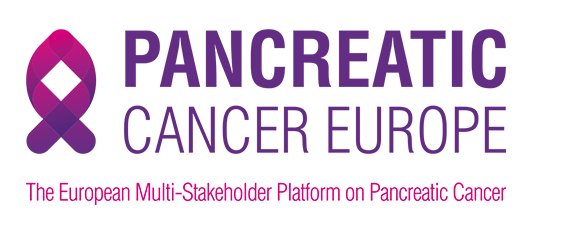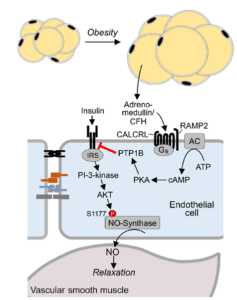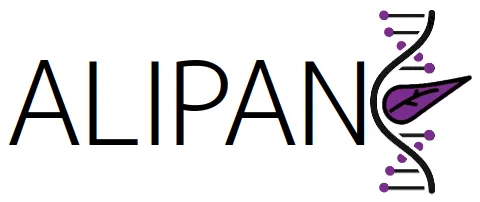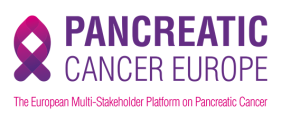
by Comite Web | Apr 7, 2025 | Sin categorizar
On March 20th, the second Scientific Meeting of ALIPANC took place at the University of Barcelona’s Campus Clinic. Over 100 researchers from Spain and Portugal attended to share the latest findings on pancreatic cancer. The day began with a keynote lecture by Dr. Peter Bailey from the Botton-Champalimaud Pancreas Cancer Center. This was followed by short presentations from PhD students, postdoctoral researchers, and team leaders from the ALIPANC network.
The event featured a poster session showcasing 16 displays of new research from the community. Additionally, the community paid tribute to Elena Mora, recognizing her family’s dedication and support in the fight against pancreatic cancer. The day concluded with a final keynote lecture by Dr. Joaquin Arribas from the Hospital del Mar Research Institute. This year’s meeting also included awards for the:
- best short presentation: Isabel Villaoslada
- best posters: Adrián Santiso, Mikhail Chesnokov, and Ariel Acuña-Pincay
- winner of the networking activity held throughout the day: Marta Celma
Overall, the meeting reinforced ALIPANC’s commitment to advancing pancreatic cancer research and we look forward to the next edition!

by Comite Web | Mar 26, 2025 | Sin categorizar
PCE Early Career Investigator Scientific Stay Award – 2025 Edition
We are excited to share that the 2025 Call for the Short-term Scientific Stay Award is now open! Granted by the Pancreatic Cancer Europe (PCE) platform.
This opportunity aims to support early-career investigators in advancing their research.
Application
deadline: Monday,
April 14, 2025. Please find the details enclosed:
2025 PCE short-term scientific stay award – call
We would appreciate it if you could share this opportunity within your networks.
Thank you for your support!
ALIPANC team
by Comite Web | Mar 9, 2025 | Sin categorizar
This one-day Scientific Meeting is yearly event that brings together the members of ALIPANC, a coalition of over 65 research groups from Spain and Portugal centered on understanding and defeating pancreatic cancer. The scientific meeting is intended to provide an in-person platform to showcase the clinical and research progress of individual groups to the general community, promote discussions, and foster novel collaborations. The yearly meeting will feature 2 Keynote lectures, 3 scientific sessions, a poster session, and a “team dynamics” event to promote interaction between groups.
Venue: Aula Magna of the Campus Clinic of the Universitat de Barcelona (Carrer Casanova 143, Barcelona).
Date: March 20th 2025, from 09.00 to 18.00.
Sessions:
Keynote lectures:
Peter Bailey, PhD (Director of Translational Research, Botton Champalimaud Pancreatic Cancer Center). “Pancreatic Cancer and the role of extrachromosomal DNA”
Joaquin Arribas, PhD (Director of HMRI, Barcelona). “Immune redirection against HER2-Positive Tumors: From Breast to Pancreas”
Scientific sessions: These sessions will be exclusive for members of ALIPANC, where 20 min per speaker will be allocated (15 min talk + 5 min of Q/A).
Poster session: We will hold the first ALIPANC Scientific Poster session to give the opportunity to more groups to present their work to the community. Posters will be viewed during coffee breaks, lunch, and a dedicated session.
See more in our program: ALIPANC Program
This event is supported by:


ALIPANC maintains full autonomy in its development and organization.
by Comite Web | Feb 25, 2025 | Sin categorizar
Endothelial insulin resistance induced by adrenomedullin mediates obesity-associated diabetes
Type 2 diabetes is a significant risk factor for the development of pancreatic cancer, while obesity is a well-established risk factor for type 2 diabetes. However, the molecular mechanisms linking these two conditions has remained obscure until now.

This manuscript by Cho et al, in which the group of Alfredo Martínez Ramírez has participated, has been recently published in Science. In this intensive work, the authors demonstrate that adipocytes (more abundant in obese people) secrete the regulatory peptide, adrenomedullin, which binds to its receptor in endothelial cells resulting in the activation of phosphatase PTP1B and in the blockade on the insulin receptor in these cells. This endothelial insulin resistance is a rather new concept and has important consequences in blood flow regulation. In addition, the authors have shown that using an adrenomedullin inhibitor is able to prevent insulin resistance even in obese mice, opening a door for pharmaceutical treatments to prevent type 2 diabetes initiation in overweight people.
Read the full article here: https://www.science.org/doi/10.1126/science.adr4731
More about the group of Alfredo Martínez Ramírez: https://alipanc.org/grupo/grupo-de-angiogenesis-alfredo-martinez-ramirez/

by Comite Web | Feb 1, 2025 | Sin categorizar
Last November 22, the Alliance’s Charity Gala featured a particularly emotional moment. Joan Guinovart, who had confirmed his attendance to share his vision as a researcher and patient, was unable to be present due to his deteriorating health. His daughter, Caterina Guinovart, on his behalf, read the speech he had prepared, conveying his unwavering commitmentto science and the need to move faster in the fight against disease.
Joan Guinovart (1947 – 2025) was a leading Spanish biochemist, renowned for his research on glycogen and hepatic glycogen synthase, as well as for his work with FEBS, IUBMB and the Spanish Society of Biochemistry and Molecular Biology. Between 2001 and 2002, he directed the Barcelona Science Park and in 2005 founded the Institute for Research in Biomedicine of Barcelona (IRB Barcelona), marking a milestone in the advancement of biomedicine.
In his speech, Guinovart emphasized the urgency of increasing resources for research, accelerating the translation of scientific discoveries to the clinic and eliminating bureaucratic hurdles that slow down this process. These were his words:
I thank the organizing committee for their invitation to participate in this event. Finally after 50 years of dedicating myself to biomedical research I am invited to speak at a cancer symposium, thank you!
This time I speak from the dual perspective of the researcher and the patient. As a researcher, I have been surrounded by colleagues at the Institute for Research in Biomedicine (IRB Barcelona) who work on different aspects of experimental oncology. Basic researchers working on the molecular basis of diseases are aware of the impact that our work can have on patients. But this vision is magnified when seen from the other side, because it is basic and clinical research that can change the life of the cancer patient and that offers hope and expectations of overcoming the disease.
Research, together with advanced clinical practice, has provided tools to treat certain types of cancer that have dramatically increased survival and cure rates.
Unfortunately, pancreatic cancer is not at the forefront of these advances, which indicates that not enough effort is devoted to research on this type of tumor. It is therefore necessary to attract more financial and human resources to the fight against this disease. ALIPANC’s efforts in this direction are commendable.
Patient associations and biomedical research funding agencies should devote a greater percentage of their budgets to the fight against pancreatic cancer, which is one of the most deadly cancers, whose incidence is increasing dramatically and of which many basic aspects are still unknown.
On the other hand, hospitals and research centers would do well to redouble their efforts to attract more bright minds in biomedical research to tackle these types of projects. Pancreatic cancer poses exciting challenges that should prove very attractive to biomedical researchers.
I am proud that some of the most brilliant scientists trained at IRB Barcelona have decided to dedicate their efforts to pancreatic cancer research. Thank you Pancho Barriga, Elisa Espinet, and Direna Alonso-Curbelo for choosing this line of research and being part of ALIPANC. Thanks also to Cristina Fillat, former collaborator, for working on this topic.
For a patient, research on his or her disease is a source of hope. However, the pace of translational research must be accelerated in order to reduce the time between a basic discovery and its application in the clinic. In this respect, any bureaucratic hurdle becomes a limiting factor. Every effort must be made to optimize the translational processes, and here the national and European health authorities have a fundamental role to play.
One aspect that is not evident until one finds oneself in this situation is the importance of the family and social environment in dealing with the fight against the disease. I cannot imagine what it would be like to cope with the disease without the unconditional support of my family. I believe that having this support is an essential part of the process of fighting and healing.
Thanks again for the invitation. I regret that I was unable to attend in person. I would like to take this opportunity to also thank my oncologists, other medical specialists and nursing professionals for their excellent treatment of me. Thank you very much.
His legacy, both in science and in advocating for research as a driver of progress, will continue to inspire the biomedical community and all those who strive for a better future for patients.






